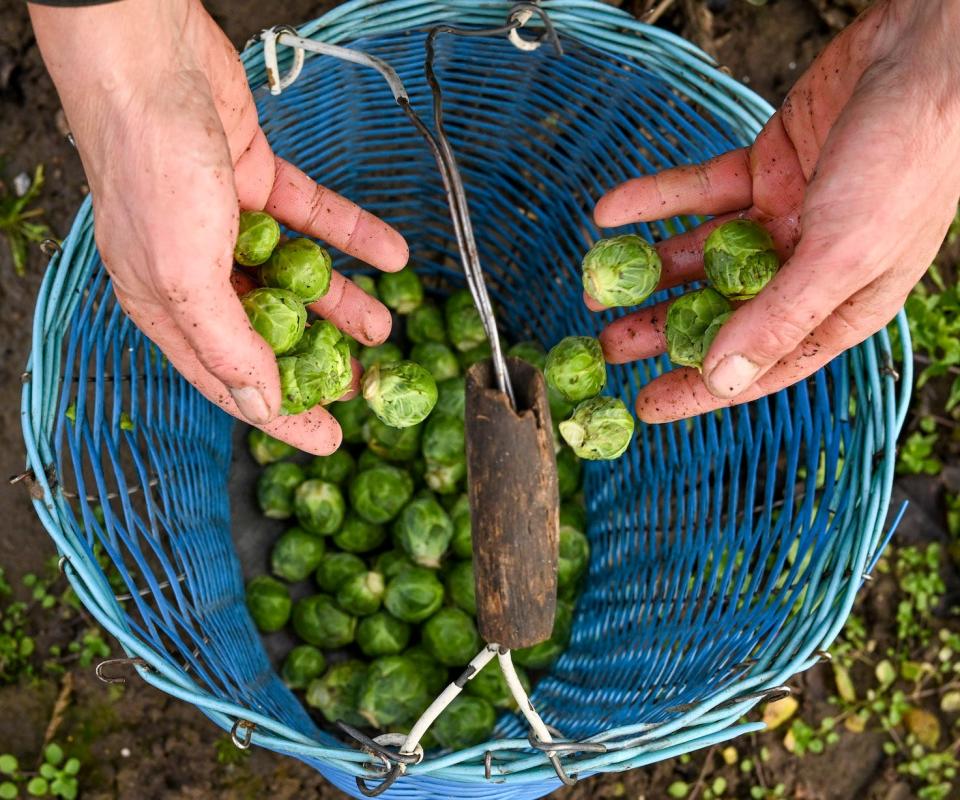4 ways a top biological age expert reversed his own biological age by 4 years
Biostatistician Steve Horvath figured out how to use spit to measure aging in 2011.
He says you shouldn't take "biological age" calculators too seriously — they're still experimental.
But simple, healthy activities can reduce your biological age, like eating vegetables and walking.
Steve Horvath was the first person who figured out that you could use DNA from spit to determine, roughly, how fast a person's body is aging.
"At the time it was a very curious finding that you spit in a cup, and you measure the age," the biostatistician previously told Insider.
Simply put, his original clock — developed at UCLA in 2011 — could predict, with a fair amount of accuracy, how quickly a person's body was marching toward death, regardless of their chronological age.
That was at least a decade before the term "biological age" started floating around in popular conversation, and well before private companies were charging people hundreds of dollars to mail in their spit in return for a biological age calculation.
"The aspiration is that it will be clinically useful, so that people will get this test as part of the annual physical," Horvath, whose "GrimAge" biological clock is widely regarded as the best in the industry, said. "I emphasize 'aspiration,' because we are not there yet."
For now, he says biological clocks are more of a novelty — a fun measurement that people shouldn't take too seriously.
But, in his own life, Horvath has found that the clock may serve as a useful reminder to course-correct bad habits. In his 50s, Horvath tried his own GrimAge clock out on himself, just for fun. He was shocked to find that his Grim biological age was about five years older than his real age. Horvath took the test as a sign that he could be taking better care of his body.
"Everything you know about a healthy lifestyle does seem to affect these biomarkers," he said.
4 changes Horvath made that reduced his biological age, from diet to medication
These four changes weren't easy to achieve, but Horvath was hopeful that the sacrifices might move the needle — and he observed that they did:
1. He cut down on bread and pasta, and started eating more frozen vegetables

"Consequently, many of my meals now primarily consist of microwaved vegetables," he told Insider. "It takes a lot of inner strength to eat Brussels sprouts for breakfast."
Vegetables like leafy greens, crunchy sprouts, beets, and asparagus are nutrient rich foods that can naturally reduce inflammation, staving off a whole host of age-related diseases, including cancer and diabetes.
2. Horvath increased his dosage of a cheap cholesterol drug that many doctors say can help out with healthy aging
Horvath had already been on a low-dose statin, but he switched to a stronger prescription.
Studies have consistently shown that statins can have a decent effect on healthy aging, in people who are at risk of having heart issues. They can lower a person's risk of stroke, or heart attack, and act to remove bad cholesterol from your blood.
"Statins should not be put in the water for everybody," Dr Neil Stone, a cardiologist from Northwestern University, told Insider. "We're very clear that statins work to do two things: They lower LDL [bad cholesterol] and they also lower inflammation, and that's a very powerful combination — in people at risk."
3. He started taking at least 5 different supplements, including vitamin D
"The scientific evidence for some of these supplements is only very weak," Horvath cautioned. "I don't endorse the use of any of these."
He takes vitamin D, which is a favorite of many other longevity scientists and investors, for its ability to improve the way our bodies absorb calcium.
Horvath also takes zinc (well known among doctors to be good for both preventing and shortening the duration and intensity of common colds.)
He also regularly pops fish oil, garlic, and a cruciferous vegetable supplement.
4. And he takes a brisk, uphill walk for about 20 minutes every night after dinner

Brisk walking is a great longevity-boosting exercise, and hiking uphill may be even better than cruising around on flat ground.
People living in the world's longevity Blue Zones of Sardinia, Italy and Loma Linda, California often take their walks up into the hills, whether while tending to sheep, or hiking with family and pets.
In just 9 months, he shaved 4 years off his biological age — whatever that means
About nine months into this tiny (and very unscientific) experiment, Horvath checked his GrimAge again. He was pleasantly surprised to discover his biological age had decreased by 4 years — lining up near perfectly with his real, lived age.
"However, it's crucial to highlight that this information is purely anecdotal," he cautioned. "A sample size of one lacks adequate validation."
Still, many of the simple principles he followed on his biological age-reducing quest are straightforward, cheap things that we already know can, in fact, slow down aging. (Adding more vegetables into your diet, taking more walks, or getting a prescription for cholesterol-lowering drugs, if that's what you need, are all science-backed interventions that help with healthy aging.)
The good news is there's no biological age test required to start doing more of these healthy behaviors. Just get moving, and eat more veggies.
Read the original article on Insider


